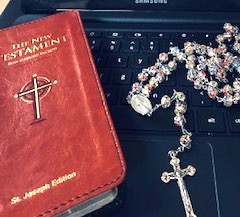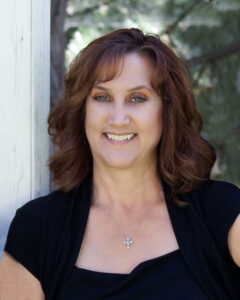
Step Four – Made a searching and fearless moral inventory of ourselves as writers and of our writing.
I hope you took the time to pray about your writing resentments. Writing them down probably made them real for you. The whole process of admitting to ourselves that we are not perfect is really hard. It may have stirred up the initial anger or hurt that you felt at the time of the incident, which only proves that it was never forgotten or really forgiven. Jesus has told us that “Then you will know the truth, and the truth will set you free” (John 8, 32). He meant the total truth and reaching deep down and dragging up these writing resentments is only the first step.
Now that you have your list of resentments, what do you do about them? Do you push the pain down once again with another skin- deep resolution to forgive or do you use these findings to be released from the anger and pain all together? I think you need to examine the resentments and where they came from. These are a key to who you are, the pain you may carry and the areas of your spirit that need the touch of Jesus. Now that you have let the pain resurface, it is time to look at the real source of that pain—yourself.
When I was a young girl, I remember being confused by what Jesus said in Matthew 7: 3-5 “Why do you notice the splinter in your brother’s eye, but do not perceive the wooden beam in your own eye? How can you say to your brother, ‘let me remove that splinter from your eye’ while the wooden beam is in your eye? You hypocrite, remove the wooden beam from your eye first; then you will see clearly to remove the splinter from your brother’s eye.”
I remember as a child thinking, What the heck! How can you even think about your brother? I would be in so much pain if I had a wooden beam in my eye! As I grew older I thought that I was just being a silly child – that Jesus didn’t mean that at all. However, now I know that in Jesus’ eyes we are all children and that I got it right the first time. Hanging on to our spiritual illnesses causes us so much unnecessary pain. We are in so much pain that it perpetuates itself, growing larger and larger. It becomes infected and we lose our sight. We can no longer see others in the world with truth. We first have to recognize the beam in our own eye and, with the help of Jesus and his grace, remove it.
Take all of the resentments you have written and listed and make a new column. Make a column about the part you played in the scenario. All actions have reactions. Or, as Dr. Phil is famous for saying, “Each pancake has two sides.” In this exercise you are going to examine your part or side of the story. So, for each of the resentments, I want you to write the answer to the question – WHAT CHARACTER DEFECT ALLOWED ME TO DO MY PART? WAS I SELFISH, DISHONEST, SELF-SEEKING, FRIGHTENED, INCONSIDERATE, OR OTHER?
This calls for total honesty. It isn’t easy to see our part in our own resentments. It is so much easier to see the wrong that has been done to us. It is so falsely comforting to massage that resentment from our own point of view. It is a totally foreign experience to pray about, meditate about and understand our own fault that may have caused or reacted wrongly to the resentment. Here are some examples using the resentments from our last blog:
I am resentful at: Mr. Know-it-all
The Cause: He ignored me after the conference, not taking the time to talk to me.
It affected my: (Pick one or more) Self-esteem, pocketbook, ambition, personal relationship, fear.
My Part – I was selfish not thinking about how tired Mr. Know-it-all may be or what his schedule was. I was dishonest because I really wanted him to ‘like’ me as I got his attention. I was self-seeking – hoping that Mr. Know-it-all would ask me to send him my manuscript and shorten my work to gain success by using his influence. I was inconsiderate – not even hearing his advice to keep ‘plugging away.’
Another example:
I am resentful at: Howdy Doody Publishing
The Cause: Returned my manuscript unread
It affected my: (Pick one or more) Self-esteem, pocketbook, ambition, personal relationship, fear.
My Part – I wasn’t selfish. I wasn’t dishonest. However, I was self-seeking hoping Howdy Doody publishers would print a book that was clearly not in a genre they were looking for. I was frightened, thinking that their rejection was a sign that I wasn’t a good writer after all. I was inconsiderate, not following the ‘submission guidelines’ that clearly stated that they didn’t want my type of book. I was lazy and cheap not having my manuscript edited or at its best before I sent it off.
Another example:
I am resentful at: My mother
The Cause: Laughed at my desire to be a writer
It affected my: (Pick one or more) Self-esteem, pocketbook, ambition, personal relationship, fear.
My Part – I was selfish and looking for my mother’s time and approval. I was dishonest, wanting my mother to fill a part of my soul that only God can fill. I was self-seeking, and wanted her approval and attention as her ‘best’ and most talented child. I was frightened, not secure in my faith of being the writer God made me to be. I blamed my own fear and insecurity on God and myself on not having her support.
Now read over those resentments and your part in them. Doesn’t knowing your part put a different spin on what really happened? Don’t you see the person you resented in a different light? Don’t you suddenly feel a need to go to confession this Saturday? It is a real eye-opening moment to look at every situation with the eyes of truth. However, you are just at the beginning of your transformation. Remember, you are on a journey back to your Creator. It is a journey of pain and struggle but our eyes should be on the next step. In Psalm 43 God tells us “O send out Your light and Your truth, let them lead me; Let them bring me to Your holy hill And to Your dwelling places.” Next post, let’s look at our fears!
Karen Kelly Boyce is a mother of two and grandmother of two who lives on a farm in N.J. with her retired husband. She and her husband love to camp and take ‘road trips’ around the country. She has published four novels and three children’s books. Her website is www.karenkellyboyce.com
 Step Nine – Make direct amends to fellow writers, publishers, illustrators, family or readers that I may have harmed wherever possible, except when to do so would injure them or others.
Step Nine – Make direct amends to fellow writers, publishers, illustrators, family or readers that I may have harmed wherever possible, except when to do so would injure them or others.

 I eagerly awaited the second installment of this trilogy. I so enjoyed the first of book, Julia’s Gifts, that I couldn’t imagine Ellen Gable would be able to top book number one. I should have known better. Ellen Gable is so extremely talented that she never fails to entertain and delight her many fans. I follow her writing with great appreciation and enjoyment.
I eagerly awaited the second installment of this trilogy. I so enjoyed the first of book, Julia’s Gifts, that I couldn’t imagine Ellen Gable would be able to top book number one. I should have known better. Ellen Gable is so extremely talented that she never fails to entertain and delight her many fans. I follow her writing with great appreciation and enjoyment.
 A romance? A mystery? An adventure? What is this novel? Where You Lead is all of these things wrapped in colorful history and tied together by the outstanding talent of Leslea Wahl. What a gift I received in my mailbox. It kept me away from my housework and laundry. It kept me awake past my bedtime. And I loved every minute of it because I loved this teen novel.
A romance? A mystery? An adventure? What is this novel? Where You Lead is all of these things wrapped in colorful history and tied together by the outstanding talent of Leslea Wahl. What a gift I received in my mailbox. It kept me away from my housework and laundry. It kept me awake past my bedtime. And I loved every minute of it because I loved this teen novel.  I highly recommend this novel. It is not only entertaining for teenagers but adults also. Where You Lead has won the
I highly recommend this novel. It is not only entertaining for teenagers but adults also. Where You Lead has won the